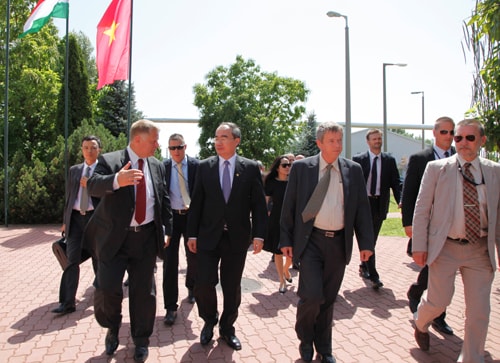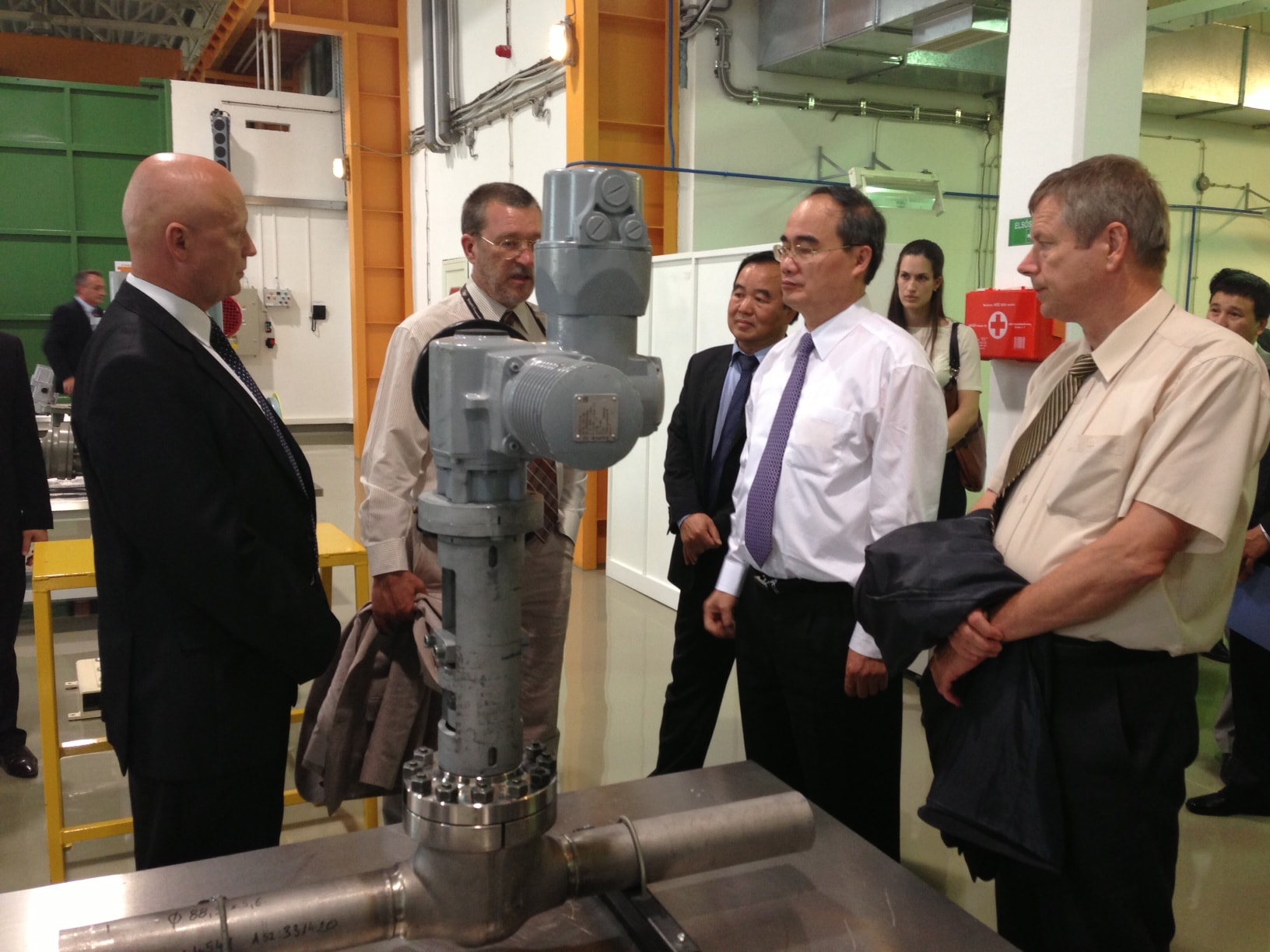Enhancing the effectiveness of Vietnam-Hungary nuclear power cooperation
Visiting Hungary's Paks Nuclear Power Plant, Deputy Prime Minister Nguyen Thien Nhan suggested that the two sides consider establishing a working group to study measures to expand and further enhance the effectiveness of cooperation in the field of nuclear power.

State Secretary Kovacs Pasl introduces the Paks Nuclear Power Plant to Deputy Prime Minister Nguyen Thien Nhan. Photo: VGP/Tu Luong
Continuing the working program in Hungary, on the afternoon of July 29 (local time), Deputy Prime Minister Nguyen Thien Nhan and the high-ranking Vietnamese delegation visited the Paks Nuclear Power Plant.
The Paks Nuclear Power Plant is a symbol of Hungary's industrialization in the 20th century. The plant is large, operates safely and efficiently, and meets the majority of Hungary's electricity needs (in 2012 it provided a record 45.9% of the country's electricity output).
In March 2009, the Hungarian Parliament approved the decision to expand the Plant, build more reactors with a total investment of about 10 billion USD and ranked the expansion of the Paks Nuclear Power Plant as a "High priority project of the national economy" and established a Government Committee on Nuclear Power headed by the Prime Minister.
According to the Hungarian State Secretary for Atomic Energy Kovacs Pasl, the greatest significance of the construction of the Paks Power Plant is that it provides an optimal solution for the environment compared to other types of power plants, as it does not emit carbon dioxide. With four reactors, this is Hungary's first and only nuclear power production center, with an output of 40% of the country's total electricity. In 2012, the four reactors produced 15,793 GWh of electricity.
Highly appreciating the results of the recent nuclear power expert training courses for Vietnam in Hungary, Deputy Prime Minister Nguyen Thien Nhan said that the presence of Vietnamese students and direct practical instruction at a nuclear power plant was very useful, contributing to improving the practical knowledge of Vietnamese experts.

Deputy Prime Minister Nguyen Thien Nhan visited the unfueled nuclear reactor used for nuclear personnel training at Paks Plant.
Photo: VGP/Tu Luong
The Deputy Prime Minister suggested that the two sides consider establishing a working group to study measures to expand and further enhance the effectiveness of cooperation in this field.
The Deputy Prime Minister believes that with the experience learned from Hungarian experts, especially at this Factory, after completing the training course, Vietnamese trainees will have practical contributions to Vietnam's nuclear power projects, a field that is currently completely new to Vietnam and is also a field that Vietnam is in great need of.
According to Chinhphu.vn - LT






